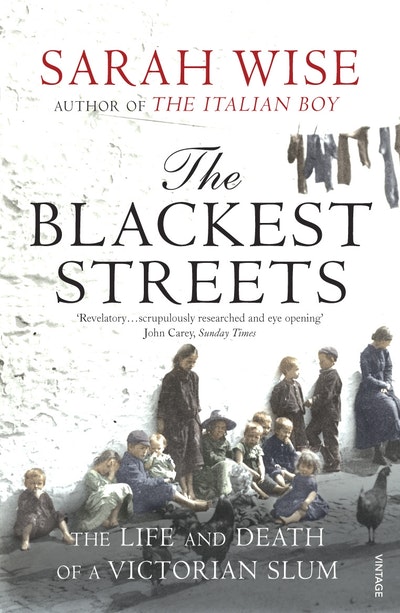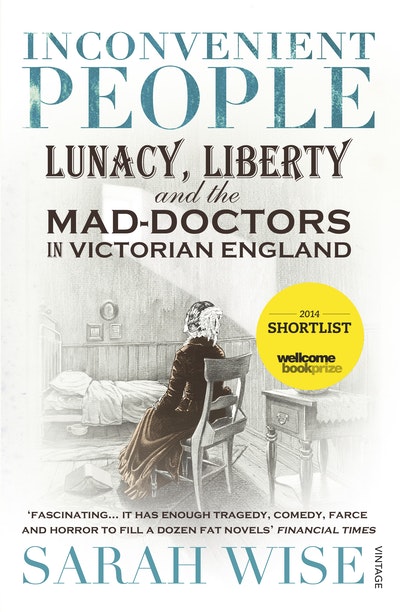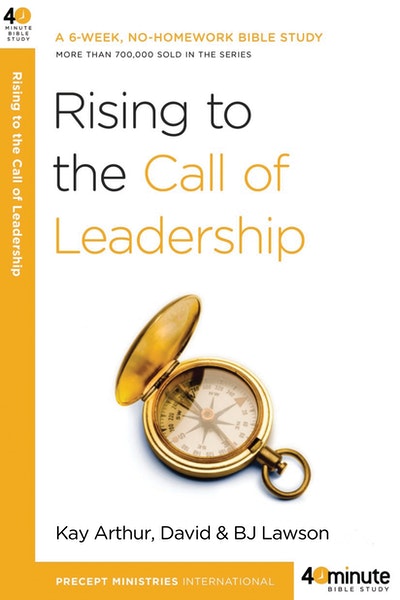- Published: 15 June 2009
- ISBN: 9781844133314
- Imprint: Vintage
- Format: Paperback
- Pages: 352
- RRP: $39.99
The Blackest Streets
The Life and Death of a Victorian Slum
- Published: 15 June 2009
- ISBN: 9781844133314
- Imprint: Vintage
- Format: Paperback
- Pages: 352
- RRP: $39.99
Sarah Wise has created an exceptional work, in that it is both scholarly and page turning - a genuine treat
Gilda O'Neill
Extraordinary scholarship and rare sensitivity
Ophelia Field, Daily Telegraph
The account is both moving and engrossing, and its tendency in places to become a litany of misery and despair is redeemed by Sarah Wise's light and occasionally humorous touch
Literary Review
Sarah Wise mines the archives to bring the local inhabitants back to life, and makes particularly brilliant use of the interviews that historian Raphael Samuel conducted in the 1970s with Arthur Harding.
LRB
Sarah Wise is too clever and considered a historian simply to give us a lurid, one-dimensional Victorian melodrama. Through painstaking archival work and readable empathetic prose, she has instead sought to evoke the texture of life here
Daily Telegraph
Carefully researched... a wide-ranging study
Sunday Telegraph
The Blackest Streets is an excellent and intelligent investigation of the realities of urban living that respond to no design or directive...This is a book about the nature of London itself
Peter Ackroyd, The Times
Her achievement is remarkable... This engrossing work shines a light not only on a turbulent period in London's history, but on humanity itself. Only the best histories can claim as much
Guardian
Spilling facts, lives, conditions, intolerable burdens and the spirit expressed by spontaneous dancing in the streets, The Blackest Streets is a little masterpiece
Herald
She is a sure-footed guide. In each strand of enquiry she has something new and surprising to say
Jerry White, Times Literary Supplement
Read it and be flabbergasted
New Statesman
As with her previous book The Italian Boy, Sarah Wise is superb on statistical detail... In every respect this is a note-perfect work of social history, thoroughly researched, charitable in its sympathies, and sadly still embodying lessons for today
Independent
A revelatory book...beaming the light of impartial historical research into the horrible dens and alleys. It avoids the voyeurism that such books often fall into: Wise describes the terrible conditions dispassionately, bringing out the resilience and self-respect of the slum-dwellers
John Carey, Sunday Times
Sarah Wise animates the horrors in fascinating detail
Toby Clements, The Telegraph
As in her wonderful book The Italian Boy, she explores a milieu that was hungry, dirty, threadbare and exploited
Christopher Hirst, The Independent




